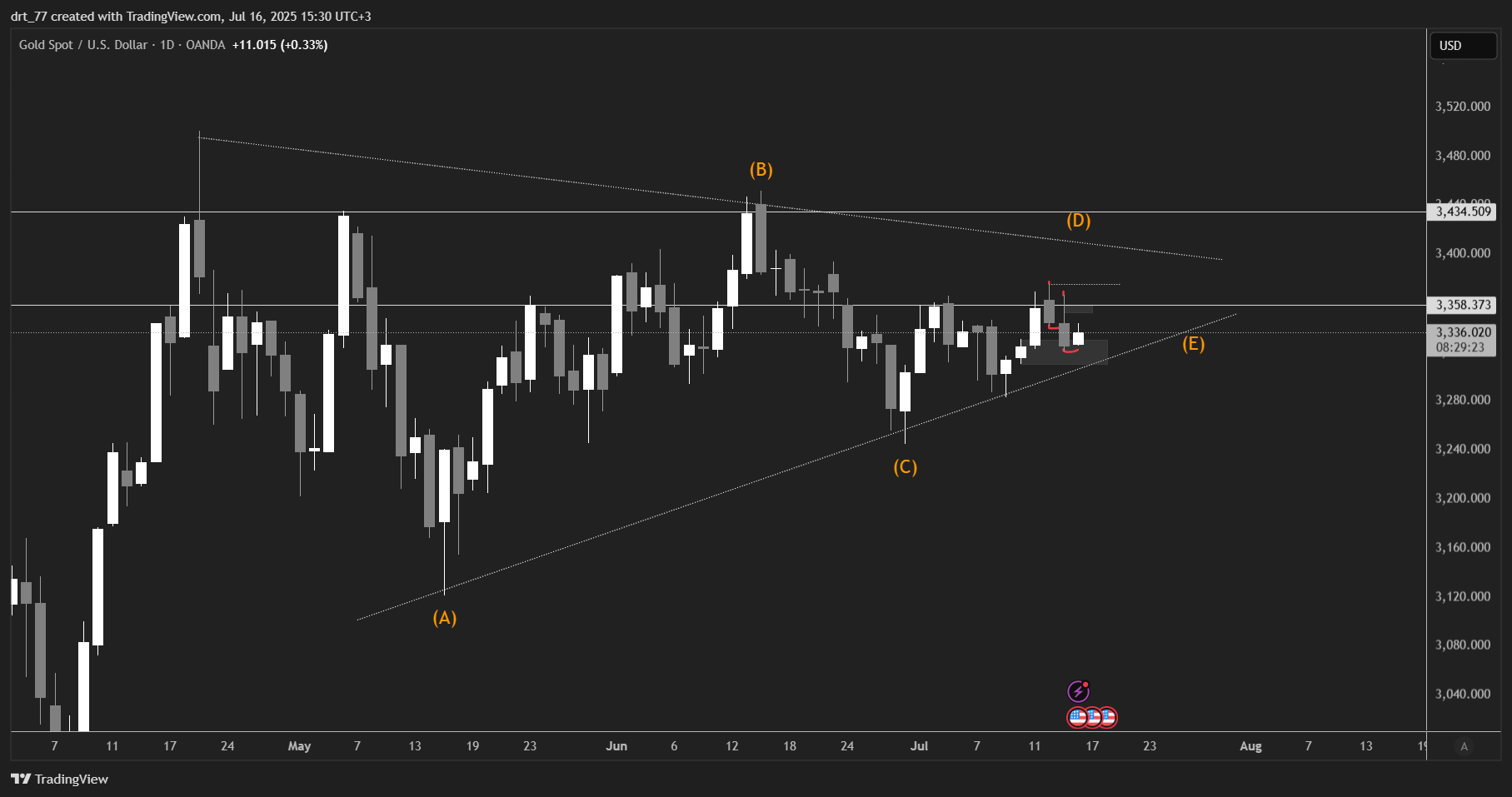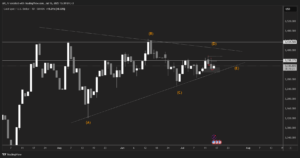Gold prices remained rangebound on Tuesday as investors focused on US inflation data due later this week, which could shed more light on the timing of the first Federal Reserve rate cut this year.
Investors are now looking ahead to the US Personal Consumption Expenditures Price Index (PCE) data due on Friday. The index is expected to rise 0.3% in February, which would keep the annual pace at 2.8%. The US Consumer Confidence Index is also due later today at 5:00 PM Saudi time.
Traders are pricing in a 70% probability that the Fed will start cutting rates in June, according to the US interest rate monitor available on Investing.com Saudi Arabia. Lower interest rates reduce the opportunity cost of holding bullion. Meanwhile, the dollar index fell against its rivals, making gold less expensive for holders of other currencies.
Gold and Dollar Now
Gold futures are now down 0.13% to $2173 an ounce. Spot gold is up 0.06% to $2173 an ounce. The dollar index is down about 0.1% to 103.845 points.
Other Metals
Silver fell 0.2% in spot trading to $24.63 an ounce. Platinum fell 0.3% to $899.87. Palladium fell 0.1% to $1003.68.
Breaking: Important Fed Statements on Interest Rates
Chicago Fed President Austan Goolsby said earlier today that he now expects three 25 basis point rate cuts this year. Atlanta Fed President Raphael Bostic had said he now expects only one rate cut this year instead of the two he had previously forecast, adding that it would likely happen later in the year.
Bostic had previously said it would be appropriate for the Fed to cut rates twice in 2024, with the first likely coming this summer. Fed officials left rates unchanged for the fifth consecutive meeting on Wednesday and maintained their forecast for three rate cuts this year. After the decision, Chair Jerome Powell said Fed members expect to gain confidence that inflation will move to the 2% target and that the first cut will likely be “sometime this year.
While policymakers see the federal funds rate reaching 4.6% by the end of 2024, according to their median rate forecast, individual forecasts were divided. The Fed’s “dot plot” showed 10 officials expecting three or more cuts this year, while nine expected two or fewer.
Dollar Retreats, Yen Supported by Japanese Government
The dollar fell on Tuesday on profit-taking in stocks and was pressured somewhat by a slightly higher yen as Japanese government officials continued to defend the currency.
The New Zealand dollar rose from a four-month low against the US dollar to trade at $0.5999, and the same was true for the pound, which rose to $1.2636, moving away from a one-month low of $1.25755 last week. With relatively little economic data expected this week, the market’s focus is on the US Consumer Price Index (CPI), the Fed’s preferred inflation measure, on Friday, which could shape the path of US interest rate expectations.
The US Core Personal Consumption Expenditures Price Index is expected to rise 0.3% in February, keeping the annual rate at 2.8%. In Japan, the dollar fell 0.04% against the yen to 151.37 yen, facing strong resistance near the 152 yen level due to threats of intervention by Japanese authorities to protect the currency.
Japanese Finance Minister Shunichi Suzuki said on Tuesday that he does not rule out taking any action to deal with the yen’s weakness. The yen has fallen more than 1% since the Bank of Japan (BOJ) raised interest rates last week, as traders continue to focus on the stark interest rate differentials between Japan and the rest of the world, particularly the United States. Japanese authorities have become increasingly vocal about their displeasure with the currency’s decline, which is approaching its lowest level in several decades, reached in 2022.
For further insights, check OneRoyal’s Facebook, Instagram, and Twitter pages and expand your understanding of financial markets with global perspectives. Staying informed is crucial in the ever-evolving world of finance.
Disclaimer: This article is not investment advice or an investment recommendation and should not be considered as such. The information above is not an invitation to trade and it does not guarantee or predict future performance. The investor is solely responsible for the risk of their decisions. The analysis and commentary presented do not include any consideration of your personal investment objectives, financial circumstances, or needs.





